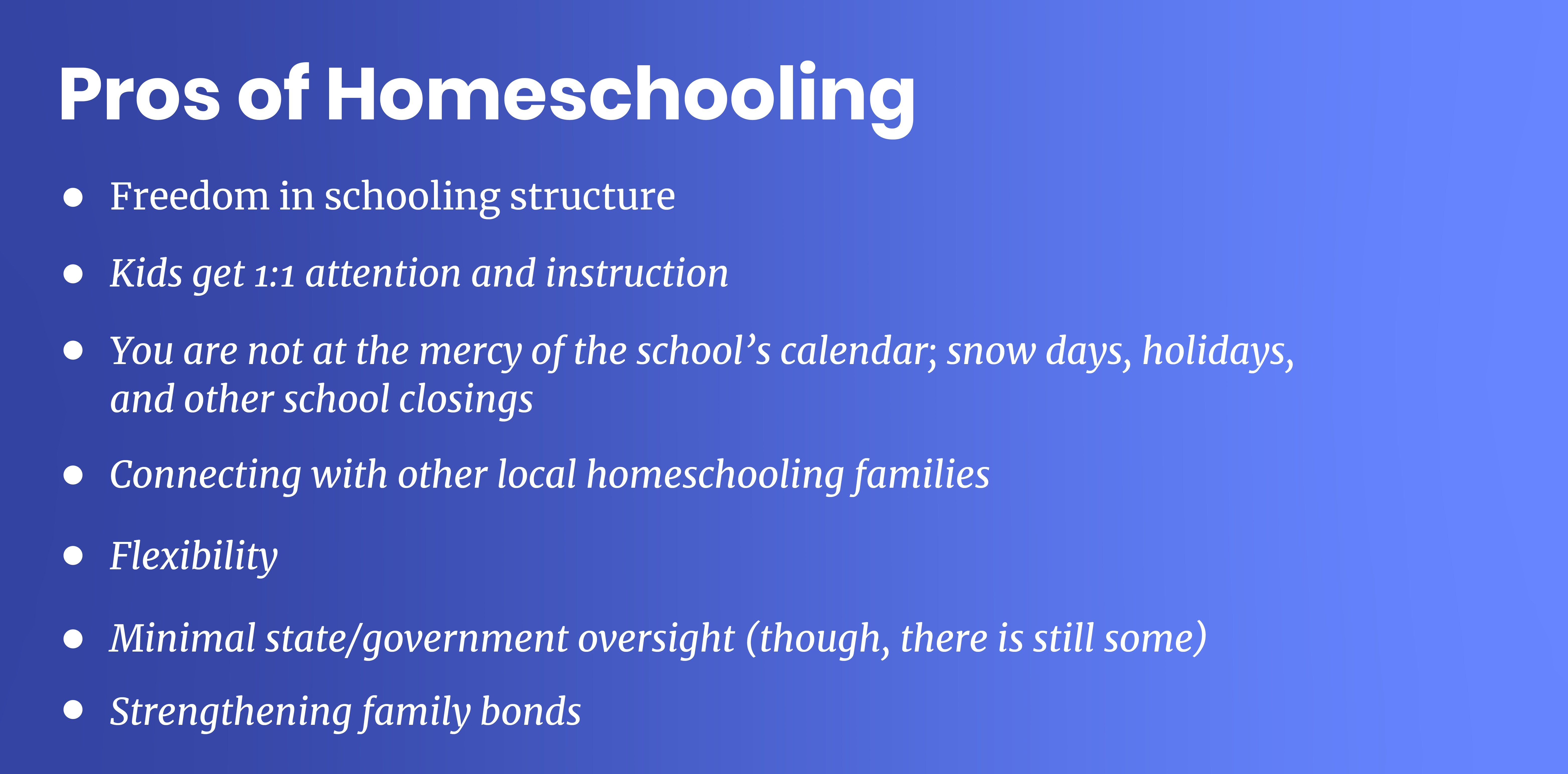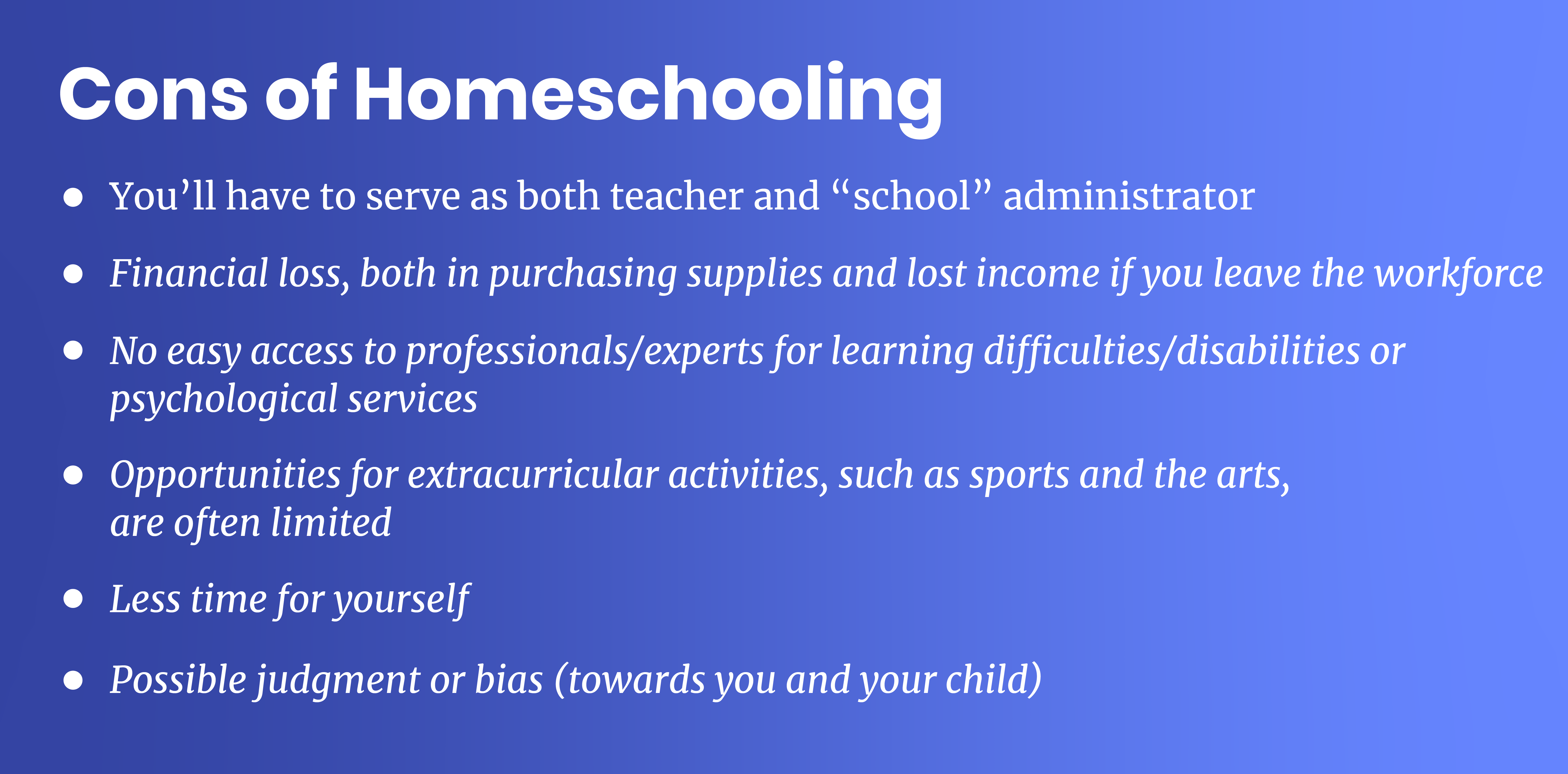For parents of school-aged kids, the pandemic (continues to) hit differently. Suddenly, parents guided their kids through virtual learning and took on a lot of a teacher’s role, whether they wanted to or not. It was an even bigger ask for parents who work outside of the home because juggling work and parenthood is difficult under normal circumstances, so this seemed downright impossible. It caused a significant disruption in the talent market, with many parents (primarily women) leaving the workforce to instead focus on helping their kids succeed academically.
As schools reopened, it became clear that the classroom is no longer what it was pre-COVID. Some schools reopened entirely, while others created hybrid schedules where students were onsite some days of the week and at home on the others. Even though school was inching towards (somewhat) normalcy again, many parents who work outside the home were still left in a lurch. However, parents that had left the workforce had to decide what to do next. Because of this, more and more parents have opted out of traditional school to try instead, homeschooling their kids.
According to the United States Census Bureau, between 1999 and 2013, families homeschooling remained steady at around 3.3%. (that number fluctuated over the years). The percentage increased to 5.4% by April of 2020, and by the fall of 2020, it grew to 11.1%. The increase is incredible, so if you’re considering transitioning your family to a homeschooling model, you certainly aren’t alone.
Pros & Cons of Homeschooling
There are certainly benefits to homeschooling your kids, such as taking a family vacation whenever you want. Also, you can move your classroom around, from the house to the park and the backyard. However, there are also drawbacks like socialization, time commitment, and taking on the full-time role of a teacher if you’ve never formally been one. The decision on whether or not to homeschool your kids shouldn’t be made on a whim or out of exasperation over temporary mask mandates. Parents should take time to weigh the pros and cons of this setup and determine if it is the right choice for their family. Here are some things to consider:
Pros
- Freedom in schooling structure
- Kids get 1:1 attention and instruction
- You are not at the mercy of the school’s calendar; snow days, holidays, and other school closings
- Connecting with other local homeschooling families
- Flexibility
- Minimal state/government oversight (though, there is still some)
- Strengthening family bonds
Cons
- You’ll have to serve as both teacher and “school” administrator
- Financial loss, both in purchasing supplies and lost income if you leave the workforce
- No easy access to professionals/experts for learning difficulties/disabilities or psychological services
- Opportunities for extracurricular activities, such as sports and the arts, are often limited
- Less time for yourself
- Possible judgment or bias (towards you and your child)
Why Continue To Homeschool?
In all likelihood, the number of families enrolled in homeschool will decrease when the ‘21-’22 school year comes around, but it may not decline to pre-pandemic numbers. Some families will probably find that their kids thrive in this environment, and some parents may enjoy their new role as teachers. Or, ideally, maybe it’s a combination of both.
Parent and child satisfaction and success should be the driving factors in deciding whether or not to continue homeschooling, but that doesn’t mean there aren’t other good reasons to stick with it. If your child was getting bullied at school or was not getting the academic support they needed, homeschooling might be their best environment. Maybe it allows for better work-life integration for parents who work remotely. Or, perhaps the lack of exposure to COVID-19 (and other germs) is a selling point.
The big takeaway here is that continuing to homeschool your child should not be a reactionary decision. Many parents ended up pulling their kids from the school system at the height of the pandemic because we were all in a state of survival mode. We had to make fast decisions for the safety and functionality of our families. At the time, most schools were not prepared for this kind of disruption, and standards slipped. But, this was a once-in-a-century situation, and schools have since adapted, so they will be prepared if something like this were to happen again in the future. There is no longer the need to make such big decisions without taking the time needed to ensure they are what’s best for your family.
📖 Read more: Are you considering homeschool? Use our homeschooling guide to get started.
Tips For Success For Remote-Work Parents
There is no getting around the fact that homeschooling your kids while also working from home (whether it’s part-time or full-time) is a big undertaking. There will be deadlines and meetings for school and work, and chances are high you’ll have to do a lot of regular prioritizing to manage them both simultaneously successfully.
That doesn’t mean it cannot be done, though. Parents worldwide have been doing this for years, and it’s arguably going to be a little bit easier to do post-pandemic because a lot of employers are now giving their workers more flexibility than ever before. Here are some tips for successfully undertaking this challenge.
- Embrace the unknown and flexibility so that you can move things around at work or for school as needed on a daily basis
- But, still make daily plans to ensure you’re getting everything done that you need to
- If you can afford it, outsource things around the house like cleaning, lawn care, or grocery delivery so that you aren’t trying to do everything literally
- Try to balance out your day as much as possible so that you can focus on work and your kids can focus on school during the time of day when everyone is most productive
- Create designated workspaces for yourself and the kids
- Equip your kids with what they need to stay occupied or move on to another assignment when they have to wait for your attention
- Encourage your kids’ independence
- Join a local homeschooling community so that you have other parents you can rely on when something urgent comes up at work that requires your immediate attention
- Invest in a tutor to come once or twice a week, allowing you blocks of time to focus entirely on work
- Don’t forget to rest; as you are already well aware, you cannot pour from an empty cup
Final Thoughts
The pandemic brought many changes along with it, and the disruption in school was among the most challenging. Parents who chose to pivot to homeschooling in response to the circumstances were completely valid in their decisions. Now that things have started to settle and decisions about the next school year have to be made, parents need to consider more than just the pandemic when choosing whether or not to move forward with homeschooling. It’s 100% a personal decision, and what is right for one family may not be ideal for another, but whatever you opt for should be based on whether or not it’s sustainable and if you and your kids will be successful and fulfilled long-term.
Join a community that cares
Navigating work and parenting is a balancing act. Join The Mom Project to access job opportunities, career development resources and connect with a network of professionals that value work and family. 





